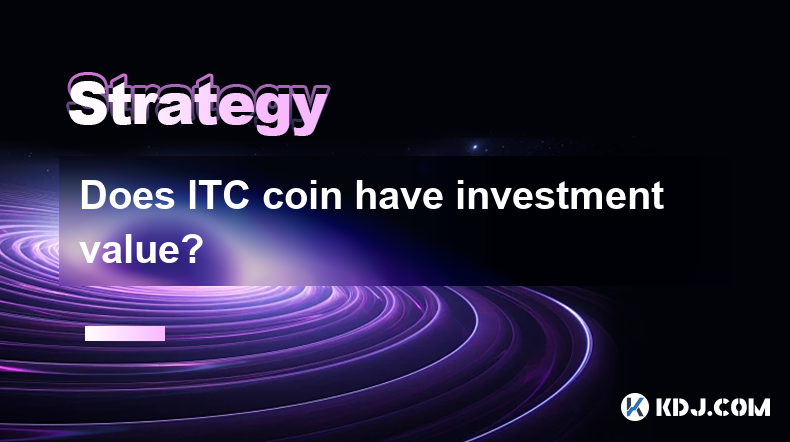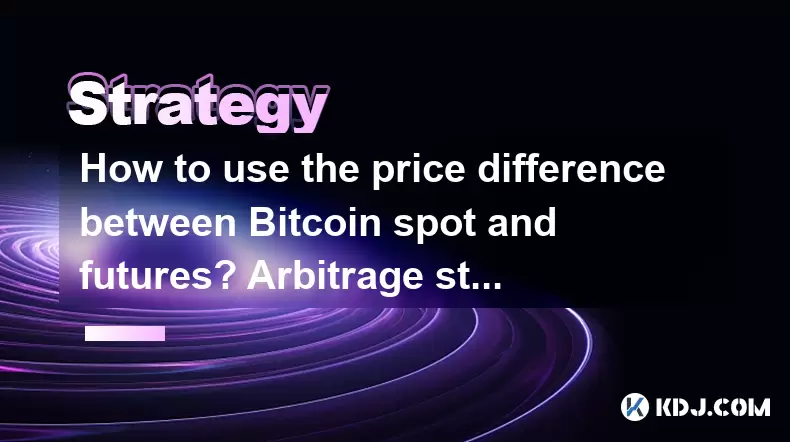-
 Bitcoin
Bitcoin $107,247.2038
-0.18% -
 Ethereum
Ethereum $2,424.7947
0.34% -
 Tether USDt
Tether USDt $1.0003
-0.02% -
 XRP
XRP $2.1171
-3.33% -
 BNB
BNB $645.6618
0.06% -
 Solana
Solana $141.5898
-1.32% -
 USDC
USDC $0.9998
0.00% -
 TRON
TRON $0.2710
-0.41% -
 Dogecoin
Dogecoin $0.1602
-2.99% -
 Cardano
Cardano $0.5553
-2.28% -
 Hyperliquid
Hyperliquid $36.3019
-2.42% -
 Bitcoin Cash
Bitcoin Cash $491.7212
2.04% -
 Chainlink
Chainlink $13.0810
-0.23% -
 Sui
Sui $2.6080
-5.06% -
 UNUS SED LEO
UNUS SED LEO $9.0040
-0.05% -
 Stellar
Stellar $0.2350
-3.06% -
 Avalanche
Avalanche $17.2294
-2.31% -
 Toncoin
Toncoin $2.8075
-1.05% -
 Shiba Inu
Shiba Inu $0.0...01121
-3.43% -
 Litecoin
Litecoin $84.2215
-0.32% -
 Hedera
Hedera $0.1429
-4.88% -
 Monero
Monero $312.2199
-0.90% -
 Dai
Dai $0.9997
-0.01% -
 Ethena USDe
Ethena USDe $0.9999
-0.02% -
 Polkadot
Polkadot $3.2973
-2.60% -
 Bitget Token
Bitget Token $4.4742
3.12% -
 Pi
Pi $0.5631
-10.10% -
 Uniswap
Uniswap $6.7817
-2.06% -
 Pepe
Pepe $0.0...09252
-3.74% -
 Aave
Aave $251.3830
-2.24%
Does lTC coin have investment value?
Litecoin (LTC), a fork of Bitcoin introduced in 2011, boasts technical enhancements like faster transaction speeds and higher scalability due to its Scrypt proof-of-work algorithm.
Jan 11, 2025 at 06:18 am

Key Points
- Understanding LTC's History and Technology
- Analyzing LTC's Market Performance
- Assessing LTC's Adoption and Use Cases
- Evaluating LTC's Competition within the Crypto Market
- Identifying Potential Risks and Challenges for LTC
- Exploring LTC's Future Prospects
- FAQs on LTC's Investment Value
Understanding LTC's History and Technology
- Genesis as a Bitcoin Fork: Litecoin (LTC) emerged in 2011 as a fork of the Bitcoin (BTC) network, designed to address Bitcoin's perceived limitations, such as transaction speed and scalability.
- Technical Enhancements: LTC introduced several enhancements over Bitcoin, including a reduced block generation time of 2.5 minutes and an increased maximum block size, leading to faster transaction processing and higher throughput.
- Litecoin's Algorithm: Litecoin utilizes the Scrypt proof-of-work (PoW) consensus algorithm, which is more memory-intensive than Bitcoin's SHA-256 algorithm, making it more resistant to specialized mining hardware.
Analyzing LTC's Market Performance
- Historical Price Trajectory: LTC has experienced significant price fluctuations since its inception, with a notable bull run in 2017 that saw its value soar before a subsequent correction.
- Market Capitalization and Liquidity: LTC ranks among the top cryptocurrencies by market capitalization, ensuring liquidity and ease of trading.
- Volatility and Risk: Like most cryptocurrencies, LTC exhibits volatility, potentially leading to significant price swings. Investors should consider their risk tolerance before investing.
Assessing LTC's Adoption and Use Cases
- Merchant Acceptance: LTC has gained some traction as a payment method, with several retailers and service providers accepting it for goods and services.
- Peer-to-Peer Transactions: LTC is suitable for peer-to-peer transactions due to its speed and relatively low transaction fees.
- Cross-Border Payments: LTC's faster transaction times and lower fees make it an attractive option for cross-border payments, particularly for small and micro-payments.
Evaluating LTC's Competition within the Crypto Market
- Established Competitors: LTC faces competition from well-established cryptocurrencies such as Bitcoin, Ethereum, and Ripple, which have more extensive market adoption and use cases.
- Emerging Competitors: LTC also contends with newer cryptocurrencies that offer similar or improved features, such as faster transaction speeds or lower fees.
- Competitive Advantages: LTC's advantages lie in its early mover status, technical enhancements, and community support.
Identifying Potential Risks and Challenges for LTC
- Volatility and Market Dynamics: The cryptocurrency market is highly volatile, and LTC is not immune to fluctuations in price and market sentiment.
- Scalability Limitations: As LTC's adoption increases, the network may face scalability challenges similar to those encountered by Bitcoin.
- Regulatory Uncertainty: The regulatory landscape for cryptocurrencies is still evolving, which could pose risks toLTC's legality and adoption in certain jurisdictions.
Exploring LTC's Future Prospects
- Long-Term Value: LTC's established market presence, technological advancements, and community support suggest it has long-term value as a cryptocurrency.
- Potential for Growth: LTC's adoption as a payment method could expand in the future, particularly if it can address scalability challenges.
- Investment Considerations: Investors should conduct thorough research and consider their risk tolerance before investing in LTC or any cryptocurrency.
FAQs on LTC's Investment Value
Q: Is LTC a good investment?
A: LTC's investment potential depends on factors such as market trends, technological advancements, and regulatory updates. Investors should weigh the potential benefits and risks before making any investment decision.
Q: How does LTC compare to other cryptocurrencies?
A: LTC is faster and more scalable than Bitcoin but faces competition from other established and emerging cryptocurrencies. It is important to compare LTC's features, adoption, and market performance to make informed investment decisions.
Q: What are the risks associated with investing in LTC?
A: Investing in LTC involves risks such as price volatility, scalability limitations, regulatory uncertainties, and competition from other cryptocurrencies. Investors should carefully consider these risks before investing.
Disclaimer:info@kdj.com
The information provided is not trading advice. kdj.com does not assume any responsibility for any investments made based on the information provided in this article. Cryptocurrencies are highly volatile and it is highly recommended that you invest with caution after thorough research!
If you believe that the content used on this website infringes your copyright, please contact us immediately (info@kdj.com) and we will delete it promptly.
- Memetic Provenance, Crypto, and Undervalued Primitives: Why Culture Matters
- 2025-06-27 09:30:12
- MAGACOIN, Ethereum, and Dogecoin: Navigating the Crypto Landscape in 2025
- 2025-06-27 08:50:12
- Shiba Inu, Portfolio, and Cryptocurrency: Navigating the Meme Coin Mania in 2025
- 2025-06-27 08:30:12
- Crypto Price Predictions: Decoding Pi Network and the Block3 Buzz
- 2025-06-27 09:10:12
- Bitcoin ETFs, Supply, and Holdings: A New Era of Institutional Dominance
- 2025-06-27 09:30:12
- Quantum Threat, Bitcoin Encryption, Experts Warn: Is Your BTC Safe?
- 2025-06-27 08:50:12
Related knowledge

What are the skills of Bitcoin option hedging? Practical case sharing
Jun 24,2025 at 04:01pm
Understanding Bitcoin Option HedgingBitcoin option hedging is a risk management strategy used by traders and investors to protect their positions in the volatile cryptocurrency market. By using options, individuals can limit potential losses while retaining the opportunity for profit. In essence, it allows one to insulate against adverse price movements...

How to use the price difference between Bitcoin spot and futures? Arbitrage strategy
Jun 20,2025 at 02:56pm
Understanding Bitcoin Spot and Futures MarketsTo effectively leverage arbitrage opportunities between Bitcoin spot and futures markets, it's essential to understand the fundamental differences between these two types of markets. The spot market refers to the direct buying and selling of Bitcoin for immediate delivery at the current market price. In cont...

How to increase DeFi lending income? Strategy and risk analysis
Jun 24,2025 at 02:08pm
Understanding DeFi Lending and Its Income PotentialDeFi (Decentralized Finance) lending has emerged as a popular way to earn passive income in the cryptocurrency space. Unlike traditional banking systems, DeFi lending platforms allow users to lend their crypto assets directly to borrowers without intermediaries. The lenders earn interest based on the su...

How to operate cryptocurrency cross-market arbitrage? Practical analysis
Jun 23,2025 at 04:01am
Understanding Cryptocurrency Cross-Market ArbitrageCryptocurrency cross-market arbitrage involves taking advantage of price differences for the same digital asset across different exchanges. The core idea is to buy low on one exchange and sell high on another, capturing the profit from the discrepancy. This strategy relies heavily on real-time market da...

How to make profits from high-frequency cryptocurrency trading? Sharing core skills
Jun 19,2025 at 05:07pm
Understanding High-Frequency Cryptocurrency TradingHigh-frequency trading (HFT) in the cryptocurrency market involves executing a large number of trades at extremely fast speeds, often within milliseconds. This method relies on small price discrepancies across exchanges or within a single exchange’s order book. Traders use complex algorithms and ultra-l...

What are the methods of cryptocurrency quantitative trading? Detailed analysis
Jun 22,2025 at 11:07pm
Understanding the Core of Cryptocurrency Quantitative TradingCryptocurrency quantitative trading refers to the use of mathematical models and algorithms to execute trades in the digital asset market. Unlike traditional discretionary trading, which relies heavily on human judgment, quantitative trading leverages data-driven strategies to identify profita...

What are the skills of Bitcoin option hedging? Practical case sharing
Jun 24,2025 at 04:01pm
Understanding Bitcoin Option HedgingBitcoin option hedging is a risk management strategy used by traders and investors to protect their positions in the volatile cryptocurrency market. By using options, individuals can limit potential losses while retaining the opportunity for profit. In essence, it allows one to insulate against adverse price movements...

How to use the price difference between Bitcoin spot and futures? Arbitrage strategy
Jun 20,2025 at 02:56pm
Understanding Bitcoin Spot and Futures MarketsTo effectively leverage arbitrage opportunities between Bitcoin spot and futures markets, it's essential to understand the fundamental differences between these two types of markets. The spot market refers to the direct buying and selling of Bitcoin for immediate delivery at the current market price. In cont...

How to increase DeFi lending income? Strategy and risk analysis
Jun 24,2025 at 02:08pm
Understanding DeFi Lending and Its Income PotentialDeFi (Decentralized Finance) lending has emerged as a popular way to earn passive income in the cryptocurrency space. Unlike traditional banking systems, DeFi lending platforms allow users to lend their crypto assets directly to borrowers without intermediaries. The lenders earn interest based on the su...

How to operate cryptocurrency cross-market arbitrage? Practical analysis
Jun 23,2025 at 04:01am
Understanding Cryptocurrency Cross-Market ArbitrageCryptocurrency cross-market arbitrage involves taking advantage of price differences for the same digital asset across different exchanges. The core idea is to buy low on one exchange and sell high on another, capturing the profit from the discrepancy. This strategy relies heavily on real-time market da...

How to make profits from high-frequency cryptocurrency trading? Sharing core skills
Jun 19,2025 at 05:07pm
Understanding High-Frequency Cryptocurrency TradingHigh-frequency trading (HFT) in the cryptocurrency market involves executing a large number of trades at extremely fast speeds, often within milliseconds. This method relies on small price discrepancies across exchanges or within a single exchange’s order book. Traders use complex algorithms and ultra-l...

What are the methods of cryptocurrency quantitative trading? Detailed analysis
Jun 22,2025 at 11:07pm
Understanding the Core of Cryptocurrency Quantitative TradingCryptocurrency quantitative trading refers to the use of mathematical models and algorithms to execute trades in the digital asset market. Unlike traditional discretionary trading, which relies heavily on human judgment, quantitative trading leverages data-driven strategies to identify profita...
See all articles
























































































